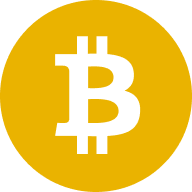Introduction: The Growing Risks of Centralized Systems
Centralized systems, such as Central Bank Digital Currencies (CBDCs) and traditional social media platforms, are increasingly under scrutiny for their inherent risks. These systems often enable censorship, surveillance, and manipulation, raising concerns about privacy and freedom. For example, China's digital yuan trials have highlighted how CBDCs can amplify financial control and surveillance risks. Similarly, social media platforms have faced criticism for data privacy violations and content manipulation.
Blockchain technology offers a promising alternative to these centralized systems, providing decentralized, transparent, and scalable solutions. This article explores how blockchain is reshaping governance, identity, and social media, addressing the challenges posed by centralized systems.
The Risks of Centralized Systems
CBDCs: Financial Control and Surveillance
CBDCs are often promoted as the future of digital money, but their centralized nature poses significant risks. Governments and central banks can use CBDCs to monitor transactions, enforce financial controls, and even restrict access to funds. The programmable nature of CBDCs allows for unprecedented levels of surveillance, raising concerns about privacy and individual freedoms. For instance, programmable money could be used to limit spending on certain goods or services, further eroding financial autonomy.
Social Media Platforms: Manipulation and Privacy Concerns
Traditional social media platforms operate as centralized entities, controlling user data and content. This centralization enables censorship, manipulation of information, and exploitation of user data for profit. The lack of transparency in these systems exacerbates these issues, undermining trust and accountability. High-profile data breaches and algorithmic biases have further highlighted the vulnerabilities of centralized social media platforms.
Decentralized Alternatives to CBDCs
BSV Blockchain: Scalability and Transparency
The BSV blockchain offers a censorship-resistant alternative to CBDCs through its scalable and decentralized architecture. With an unbounded block size and high transaction throughput of up to 1,000,000 transactions per second (TPS), BSV can handle global financial activity without congestion. Additionally, its low transaction fees (less than $0.00011) enable micropayments and peer-to-peer transactions, reducing reliance on intermediaries. These features make BSV a viable solution for creating a decentralized financial ecosystem.
Decentralized Digital Identity Systems
Blockchain technology supports decentralized digital identity systems, allowing users to maintain control over their data. Self-sovereign identities (SSIs) and zero-knowledge proofs enable secure and private identity verification, reducing the risks associated with centralized identity systems. For example, users can verify their identity without exposing sensitive personal information. However, challenges such as misuse and lack of regulation must be addressed to ensure widespread adoption.
Blockchain-Based Social Media Platforms
Addressing Manipulation and Censorship
Blockchain-based social media platforms decentralize content control, ensuring transparency and reducing the risks of manipulation and censorship. By leveraging blockchain's immutable ledger, these platforms can provide users with greater control over their data and content. For instance, platforms like Minds and Steemit use blockchain to reward users for content creation while maintaining transparency.
Scaling Challenges for Mass Adoption
While blockchain-based social media platforms offer significant advantages, scaling them for mass adoption remains a challenge. High transaction throughput and low fees are essential to support the large volumes of data and interactions typical of social media platforms. Innovations in blockchain scalability, such as those demonstrated by BSV, are critical to overcoming these challenges. Additionally, user-friendly interfaces and seamless onboarding processes are necessary to attract mainstream users.
Blockchain's Role in Secure Voting Systems
Blockchain technology has the potential to revolutionize voting systems by eliminating voter fraud, ballot tampering, and inefficiencies. By providing a secure and tamper-proof ledger, blockchain ensures transparency and trust in electoral processes. For example, blockchain-based voting systems can allow voters to verify their votes while maintaining anonymity. This innovation could significantly enhance democratic governance and reduce the risks associated with traditional voting systems.
Community-Driven Governance in Blockchain Ecosystems
Cardano's Approach to Decentralization
Cardano emphasizes decentralization through community-driven governance models like Project Catalyst. This initiative empowers stakeholders to propose and vote on network upgrades, fostering a collaborative and transparent ecosystem. Such models highlight the potential of blockchain to enable participatory governance and drive innovation. By involving the community in decision-making, Cardano sets a precedent for decentralized governance.
Boosting DeFi Adoption and Liquidity
Cardano's ecosystem growth is supported by initiatives like a $100 million treasury-backed liquidity program aimed at boosting DeFi adoption and utility. These efforts demonstrate how blockchain can drive financial inclusion and innovation, addressing the limitations of traditional financial systems. By providing liquidity and fostering innovation, Cardano is paving the way for a more inclusive financial future.
Blockchain Applications Beyond Finance
Governance and Healthcare
Blockchain's potential extends beyond finance to areas like governance and healthcare. In governance, blockchain can enhance transparency and efficiency, enabling secure voting and participatory decision-making. For example, blockchain can be used to create tamper-proof records of government spending, increasing accountability. In healthcare, blockchain can improve data management, ensuring privacy and interoperability while reducing administrative inefficiencies. Patients can securely share their medical records with providers, streamlining care delivery.
Supply Chain Management
Blockchain technology can also revolutionize supply chain management by providing transparency and traceability. By recording every transaction on an immutable ledger, blockchain ensures accountability and reduces fraud, enhancing trust across supply chains. For instance, companies can use blockchain to verify the authenticity of products, such as organic food or luxury goods, ensuring consumer confidence.
Conclusion: A Decentralized Future
As centralized systems like CBDCs and traditional social media platforms face growing criticism, blockchain technology emerges as a transformative solution. By offering decentralized alternatives, blockchain addresses the risks of censorship, surveillance, and manipulation, paving the way for a more transparent and equitable future. From governance and identity to social media and supply chain management, blockchain's applications are vast and promising, underscoring its potential to reshape industries and empower individuals.




